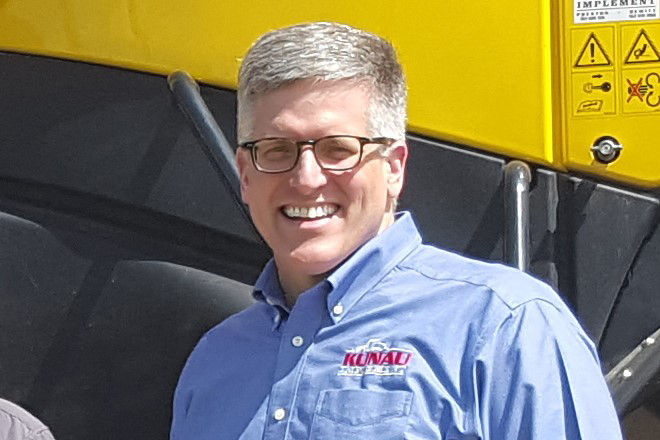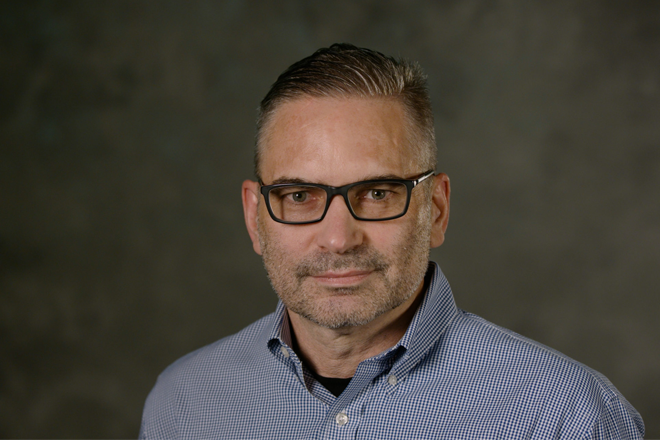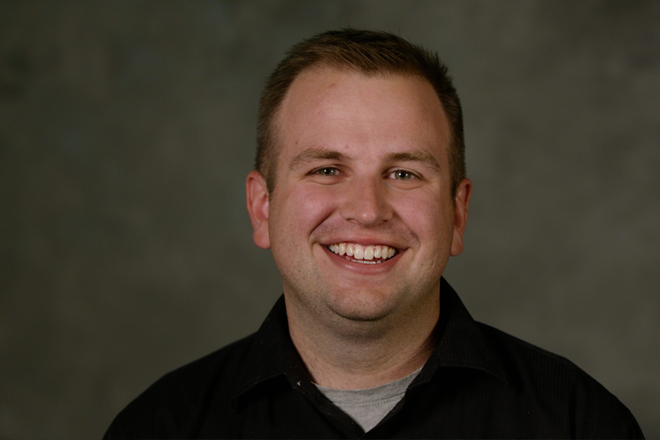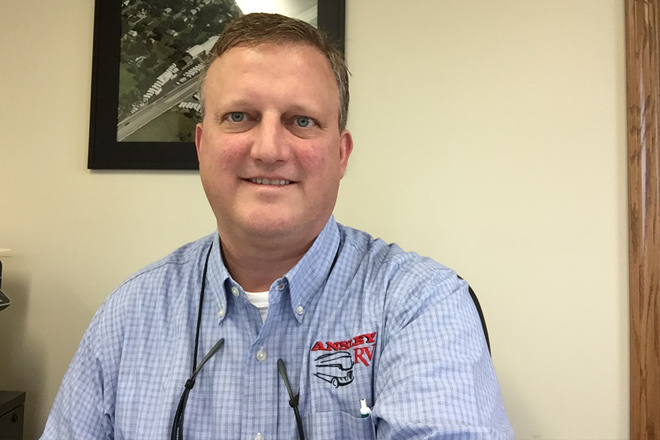How did you come to have a relationship with NCM?
Todd Kunau: I attended a management seminar and was very impressed with the professionalism. I shortly thereafter became a Management Link customer. We come from a very conservative culture in my business and we never had really been numbers driven, it was more of a very well-honed, seat-of-the-pants approach that was a very, very successful format for many decades. I’m a little more comfortable with the numbers and having the headlights on and having my information on more of a dashboard … that I can monitor things in pretty much real time and kind of keep my fingers on the pulse of the company. In this day and age there has never been more moving parts to the business.
Why was it important for you to understand your numbers?
TK: I think the seat-of-the-pants will only take you so far and it’s analogous to our promotion and understanding of the precision farming aspects of our business. I really had not been working with a budget prior to working with the Management Link program, so that’s something that our company had never budgeted anything, it kind of just, “How did it feel?” I’m able to do some goal-setting with my department managers, my sales, parts and service management. “What are we going to do? How are we going to get there?” Come back with a business plan to support those goals. It kind of helped us move towards more of a goal-setting type environment which, again, it’s proactive, it’s deciding how we want this to look and having the dashboard tell us where we are, not just year over year, but the budget. “Are we doing what we said we were going to do? Are we hitting the numbers? Where are we? Where are we going to be? What’s the year end going to look like?”
It’s also great for working with lenders and providing them confidence that we know what we’re talking about, that we know where we’re going, we’ve got a pretty accurate, proven understanding of where we think we’re going to be at the end of the year. Nobody likes any surprises and I would say lenders probably least of anybody.
How have you integrated Management Link into your business?
TK: The Management Link product has really given me access to be able to input my financials into a database that is very, very well-respected. The NCM numbers are very well-respected as far as the dealers that participate in their 20 Groups and the other Management Link dealers. Really, a pretty broad spectrum of customers, various performance levels and volume levels that give me kind of numbers to benchmark from and see where I stand and to see also what’s possible with some of the numbers. It’s been a solid relationship.
It was promoted through the North American Equipment Dealers Association. We’re a long-standing member of that dealer association. That endorsement carried a lot of weight as far as I was concerned.
Can you talk about your experience with the Dealer Candidate course?
TK: I’m actually a product of the Dealer Candidate course through the Jerkins company. I think that’s a curriculum that lives on with the NCM team. I have to say that it seems like an excellent fit with NCM. That was a huge … I was in one of the earlier classes. It was still a three-year program at that point and the Dealer Candidate course, that was an excellent, excellent program.
If you’ve talked to [farm equipment] dealers, you’ve discovered, or maybe you already knew, that generally it’s a pretty conservative group and there’s a lot of knowing things by experience and having done things a certain way, there’s a certain amount of forward momentum. There’s not always a lot of thought given and this is not an indictment of those who came before me, it’s just a matter of fact. There’s not really that focus on the minutia of the business and a lot of times people that come into the business need to learn just by keeping their eyes open and their ears open and watching and listening and learning. A lot of times that would open your opportunities to learning in a way that people who had come before had learned the business.
I knew that the complexity of the landscape had been changing rapidly and I knew that I needed to have a background in more of the business side and the Dealer Candidate course was an excellent framework to learn a little more complex, a little more solid understanding of the complex nature of the business aspect, the ratios, the financials, reading spreadsheets, more of a direct management.
I considered looking towards an MBA and this seemed like a better fit for me because it was more real-time. The case study that I used during the course, it was a very heavy course load as far as homework and assignments and reading assignments and things like that and it really pushed me in the direction in kind of turning my company into its own case study. I was able to learn with actual numbers and actual employee situations that I had been currently engaged in and kind of used them as case studies for the subject matter of the courses. Very excellent, real-time experience. I think you’ll find that with a lot of people coming up into the company, and even as we are looking at succession in the company, it’s important to have people who are excited or passionate about the business to have an opportunity to learn about all the nuts and bolts of the business. It’s not just selling iron, it’s really being in touch with what’s going on. It was a great resource for me and I would recommend it highly to anybody.
What other NCM tools have been useful to your dealership?
TK: One of the tools they released here lately is a way to look at our inventory broken into segments as a matter of months of inventory and it’s kind of a very basic, basic concept of inventory management that our manufacturers have always used, but now with the tools that we have we are able to manage our inventory, not just by total dollars, but by segment and how many months of supply that we have and we can make informed decisions when we are ordering new equipment or forecasting that we are doing for our purchases and equipment with our equipment manufacturers. That is enormous. It’s a great, great help for us.
Is it important to get an outside opinion on your business?
TK: I think it’s important to know what’s possible. I’ve been in manufacturer meetings with principals and I’ve seen people slam their fists down on the desk just proclaiming that some of these numbers are just impossible to hit, that they’re asking the impossible and some absorption numbers exceeding 50 percent. I look at this guy and I just shake my head and I’m thinking, “Man, you’ve got to get out more.” Talking about different efficiencies and, if you’re not exposed to what’s possible, how can you have the confidence to make the changes in your organizations to meet or exceed those benchmarks?
If you don’t know if the changes that you’re making in the company are having a positive or a negative effect, how do you know to do more of it or less of it? Just having that basic understanding of the numbers. My degree is in economics and I just don’t know how you can sleep at night if you don’t have your arms around this stuff.






